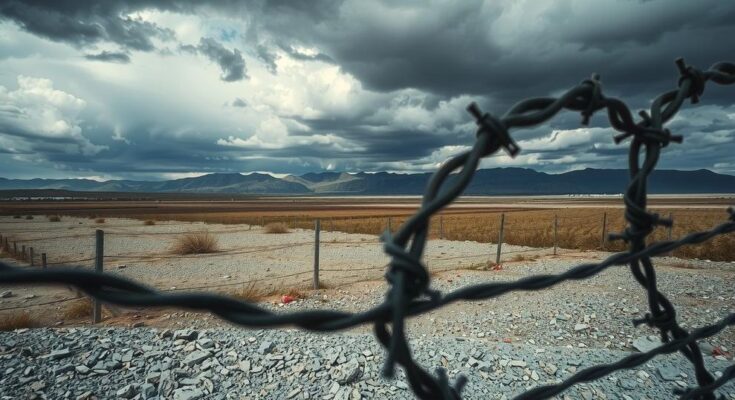Congo’s eastern regions are under siege by the Rwanda-backed M23 rebel group, leading to humanitarian crises, the deaths of UN peacekeepers, and widespread displacement. Foreign Affairs Minister Therese Kayikwamba Wagner emphasizes the need for international action against Rwandan forces in the DRC to prevent further destabilization of the region.
The eastern regions of the Democratic Republic of the Congo (DRC) face critical humanitarian crises driven by the M23 rebel group’s actions, which are reportedly supported by Rwanda. Recent violence has resulted in the deaths of UN peacekeepers, the displacement of thousands, and overwhelming hospital resources. Minister of Foreign Affairs Therese Kayikwamba Wagner shared updates on the dire situation during a discussion with journalist Amna Nawaz, emphasizing the urgent need for international support and intervention.
The DRC has experienced severe humanitarian issues exacerbated by the occupation of its territory by the Rwandan Defense Forces. The escalation in violence has disrupted healthcare facilities, left many lacking access to vital services, and rendered hundreds of thousands homeless. The situation was further complicated by the recent deaths of 17 UN peacekeepers amidst these tensions.
Minister Wagner asserted that there exists credible evidence linking the Rwandan military to the M23 rebel group, supported by United Nations expert reports citing the presence of Rwandan troops in the region. Moreover, the UN Security Council has condemned these actions, recognizing the detrimental impact of Rwandan involvement on peace and stability in the DRC.
The area, particularly rich in mineral resources, has become strategically important, especially for the extraction of coltan. Wagner asserted that the Rwandan forces have exploited local populations to mine for these valuable resources, significantly affecting the DRC’s economy while exacerbating the human rights crisis.
In her statements to the UN Security Council, Wagner described an ongoing crisis stemming from decades of increasing tensions with Rwanda and the recurrent emergence of groups like M23. She noted that earlier interventions and sanctions from international bodies could have mitigated current circumstances. Perhaps most critically, she called for full withdrawal of Rwandan forces and an embargo on minerals illegally extracted in the DRC.
Without decisive action, Wagner warned that Rwanda could further destabilize the region, potentially attempting a regime change in Kinshasa. Such an outcome would undo progress made toward regional stability, ultimately plunging the DRC and its neighbors into chaos. The urgency of the situation necessitates immediate attention from the international community to uphold peace and sovereignty in the DRC.
The ongoing conflict in the DRC predominantly stems from external interventions, particularly from Rwanda, which has historically played a destabilizing role in the region. The eruption of violence from the M23 rebel group signifies a complex geopolitical scenario encompassing issues such as territorial integrity, resource exploitation, and humanitarian crises. The presence of Rwandan troops within DRC territory has raised concern globally, prompting calls for international accountability and assistance to ensure peace and security within the volatile region.
In summary, the Democratic Republic of the Congo faces an escalating crisis primarily due to the actions of the M23 rebel group, reportedly supported by Rwanda. The Congolese Foreign Minister has underscored the urgent need for international intervention to ensure the withdrawal of foreign troops and the protection of sovereignty. Without timely action, the potential for regional destabilization looms large, necessitating an immediate and coordinated response from global stakeholders.
Original Source: www.pbs.org




